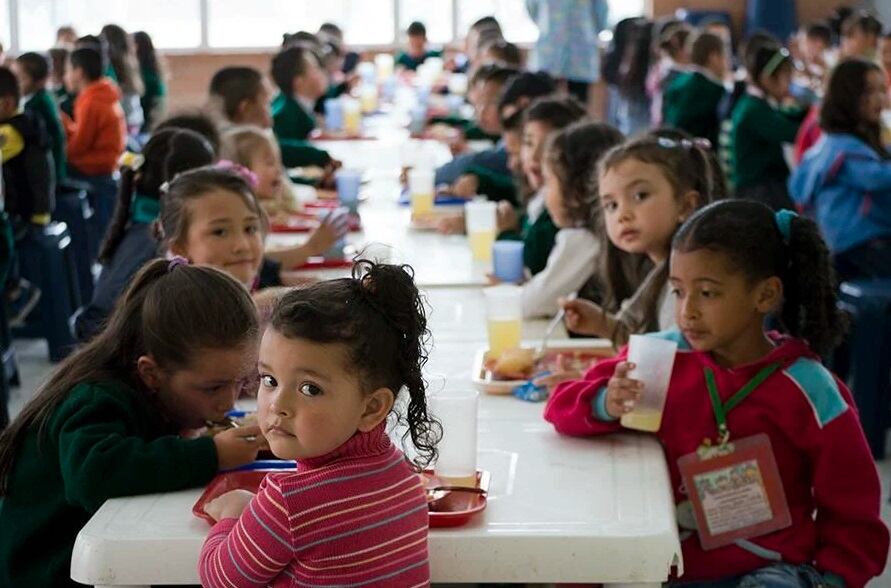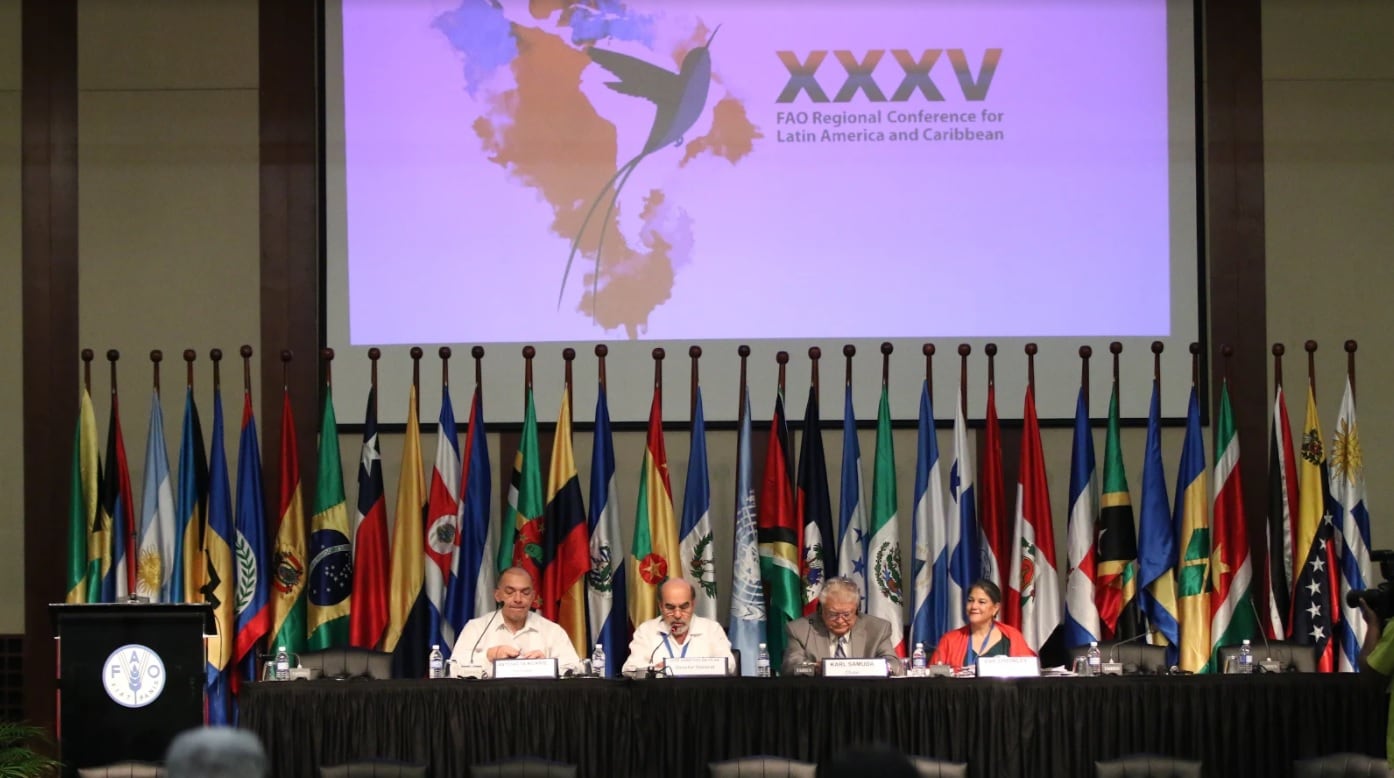In 2017, an estimated 42.5 million people lived in hunger across Latin America, 2.4 million more than in 2016, according to the latest statistics from the Food and Agriculture Organisation of the United Nations (FAO). Alongside this, poverty increased to 30.7% of the population in 2017, with 187 million struggling to find resources to access adequate food.
This was compounded by the rapid rise of obesity and overweight in the region, with 22.8% of the adult population in Latin America (96 million) and 7% of children under five now categorized obese or overweight, according to World Health Organization (WHO) figures.
The FAO estimated cost implications from obesity and overweight to stand at around 2-4% of the gross domestic product (GDP) in Ecuador and Mexico and between 0.2-0.5% in Chile, as examples.
Relevance and urgency
Speaking to FoodNavigator-LATAM, Ricardo Rapallo, senior food security and nutrition officer for FAO Latin America and the Caribbean, said tackling such a problem required food and beverage makers to take a more relevant and “crucial” role than ever before.
“Probably during the first part of this millennium, the main challenge was hunger and food insecurity... But now what is clear, is we have malnutrition and obesity, and to face this we need private sector collaboration because at the end of the day, food systems and the way the food system is organized has a lot of implications,” Rapallo said.
“[Food and beverage companies] have always been part of the solution but now it has more relevance and urgency because they are the main actors in the food system and we need to make changes in the food system. It's more obvious that they participate; it's critical.”
He said public policies and regulations addressing concerns around food and nutrition had been implemented in parts of Latin America – things like nutrition labeling and sugar taxes – but such policies, largely, remained “very new”, had not yet been measured for impact in the medium-term and were simply “not enough”.
Beyond the 'silver bullet'
“We have to be able to see the food system in a more integrated way; not just trying to find solutions on one specific point or element of the food system,” Rapallo said.
“...We're not saying new policies [like food labelling and taxes] are not useful, we think they're going to be useful, but what we suggest is to see the broader picture and try to find different, innovative and new policies in different elements of the food system.”
A focus, for example, on promoting the production of healthy foods like fruit and vegetables was vital, he said, and the FAO considered family farming and increasing links between industry and smallholders a particularly important aspect of this. Beyond farming, the issue was to then make these healthy foods widely available to all citizens, he said.
“The approach is very complex but it's necessary to see the broader picture in order to really support sustainable measures, not only silver bullets in part of the system.”

Promoting healthy habits amongst consumers was another aspect that had to be addressed, Rapallo said.
Interestingly, he said, the acceleration of obesity and overweight was fastest amongst consumers in the lower-income category but rates were most concentrated in the higher-income population.
“That's the reality. We're talking about people with resources, time and possibilities to have a more healthy life and the reality is they're not doing it.”
Changing habits young, he said, was one method touted by many health institutions across the globe – through nutrition education in schools, TV work and even information through iPads. Professor Corinna Hawkes, director of the Centre for Food Policy at City University of London, UK, previously told FoodNavigator-LATAM early-life nutrition in Latin America must be prioritized.
“We have a lot to do, that's obvious,” Rapallo said. “And we have to be able to change the cultural approaches in some cases. For example, what we see a lot in our region, in some countries, is that to have a plate full or be able to eat out from home and not cook a lot is part of social recognition.”
Dining with 'renewed political commitment'
Governments across Latin America, he said, also had a significant responsibility in sparking change.
“In order to reverse the current situation, a renewed political commitment from the whole region is required, with particular emphasis on the most vulnerable groups, such as women, children, the elderly and indigenous people.”

Change had already started to happen on a state-by-state basis, he said, with some governments focusing on trade and improving profits to invest into social affairs and others opting to promote social policies to drive minimum income for vulnerable groups.
“There are different approaches in the region. But what I think, is that 99% of Latin American countries are very concerned about the challenge of malnutrition, not only hunger but also obesity and overweight. All are trying to do something, albeit with different approaches,” Rapallo said.
What was important, he said, was that these governments collaborated with industry.
“Governments have to invite the private sector to discuss different alternatives because it's not political, it's technical, and on a technical level it's not going to be easy to implement change, so we have to have them at the table.”
This, for example, was why the private sector had been invited to present a declaration at the plenary session of this year's 35th FAO Regional Conference held in March, 2018 in Jamaica, he said. The declaration was also incorporated into the FAO's final report.
We've done it before...
Rapallo said, importantly, the region as a whole recognized change needed to happen and would hopefully bounce off earlier successes, like tackling hunger and stunting.
Latin America, for example, was the only region in 2015 to achieve international goals related to hunger, he said, by halving the proportion and number of hungry people from 1990 levels. The region had also succeeded in reducing the prevalence of stunting from 24.5% in 1990 to 11% in 2016, according to WHO figures.
“This has been possible thanks to the commitment of the different stakeholders of the countries during two decades. Political will translated into the implementation of wide-ranging social and productive policies (social protection systems, better labor conditions, support for family farming for the poor and most vulnerable groups), accompanied by a period of political and economic stability that has allowed deeper social policies,” Rapallo said.
Some countries had also explicitly incorporated the 'right to food' into national constitutions, he said, and introduced new institutional mechanisms to address challenges around food, health and nutrition.
“The positive now is that the region recognizes we have to do something. From the public sector, private sector, society to consumers – all are worried about the situation and recognize it's not an easy task, it's a complex task. The public awareness is high now, so whether you agree or don't agree, you have to move; you have to change.
“... We cannot maintain business as usual because we're not going to be able to sustain it in the future,” he said.
